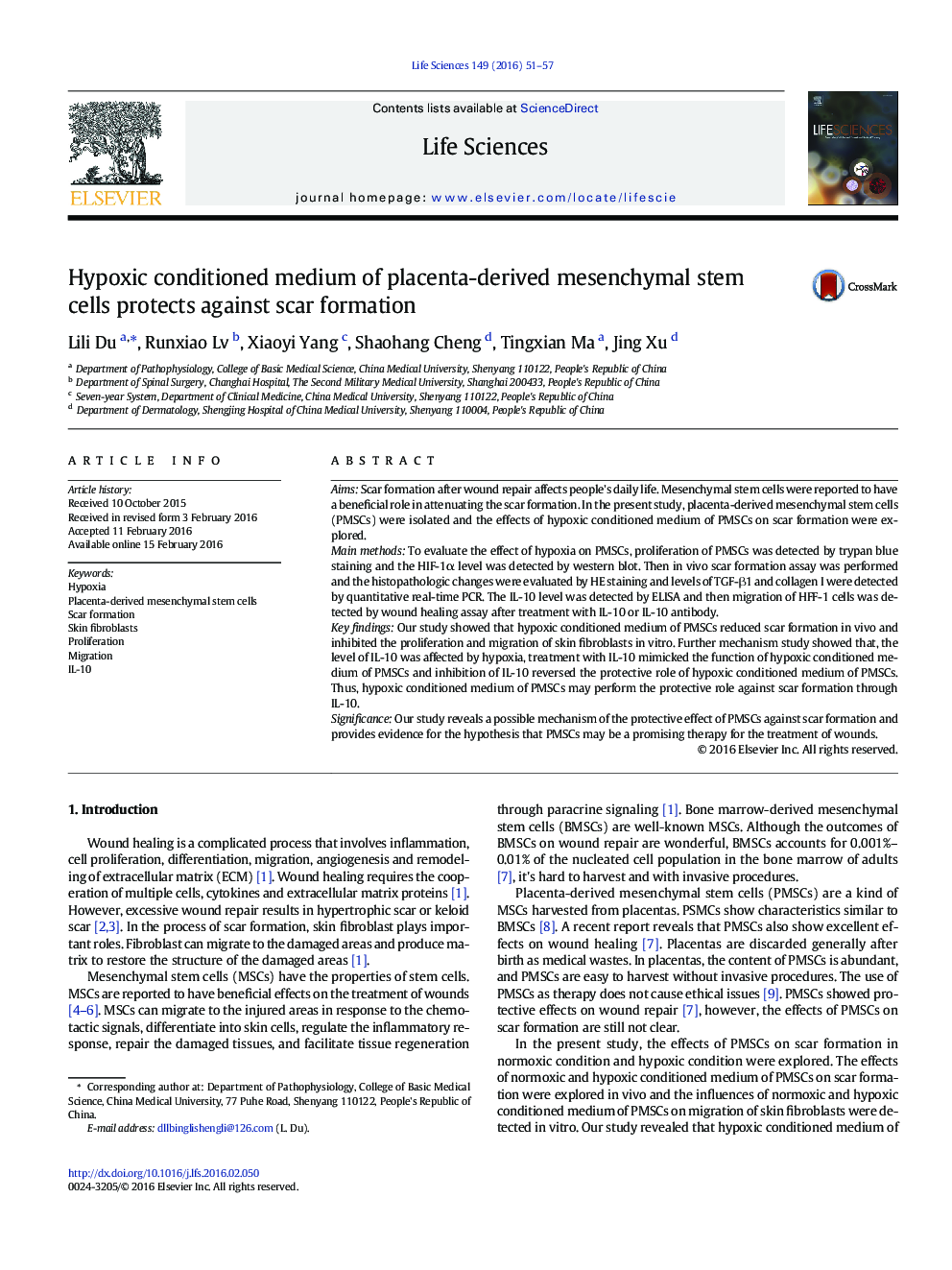| Article ID | Journal | Published Year | Pages | File Type |
|---|---|---|---|---|
| 2550639 | Life Sciences | 2016 | 7 Pages |
AimsScar formation after wound repair affects people's daily life. Mesenchymal stem cells were reported to have a beneficial role in attenuating the scar formation. In the present study, placenta-derived mesenchymal stem cells (PMSCs) were isolated and the effects of hypoxic conditioned medium of PMSCs on scar formation were explored.Main methodsTo evaluate the effect of hypoxia on PMSCs, proliferation of PMSCs was detected by trypan blue staining and the HIF-1α level was detected by western blot. Then in vivo scar formation assay was performed and the histopathologic changes were evaluated by HE staining and levels of TGF-β1 and collagen I were detected by quantitative real-time PCR. The IL-10 level was detected by ELISA and then migration of HFF-1 cells was detected by wound healing assay after treatment with IL-10 or IL-10 antibody.Key findingsOur study showed that hypoxic conditioned medium of PMSCs reduced scar formation in vivo and inhibited the proliferation and migration of skin fibroblasts in vitro. Further mechanism study showed that, the level of IL-10 was affected by hypoxia, treatment with IL-10 mimicked the function of hypoxic conditioned medium of PMSCs and inhibition of IL-10 reversed the protective role of hypoxic conditioned medium of PMSCs. Thus, hypoxic conditioned medium of PMSCs may perform the protective role against scar formation through IL-10.SignificanceOur study reveals a possible mechanism of the protective effect of PMSCs against scar formation and provides evidence for the hypothesis that PMSCs may be a promising therapy for the treatment of wounds.
